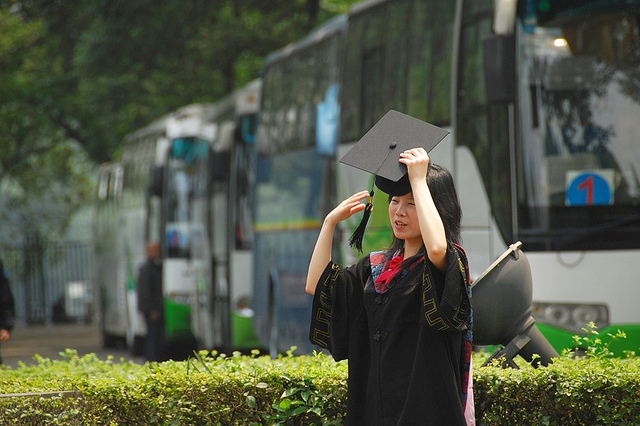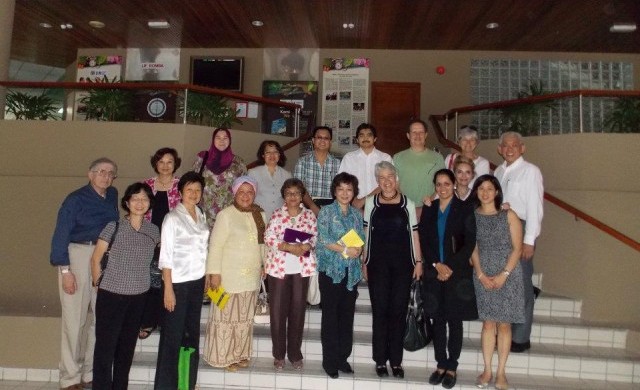By Margaret Barthel
Educational change is coming to Asia in 2016, if Barbara Hou has anything to do with it. Hou, a lawyer with a serious interest in international development in Asia, is the Founder and President of the Asian Women’s Leadership University Project, a nonprofit enterprise dedicated to beginning an Asian women’s liberal arts college to equip Asian women with the tools they need to contribute to regional and global development in the 21st century.
“AWLU’s strength would not be size but its educational quality; it would attract not just raw talent, but also a fierce social commitment to use education to advance opportunity for others,” says Hou.
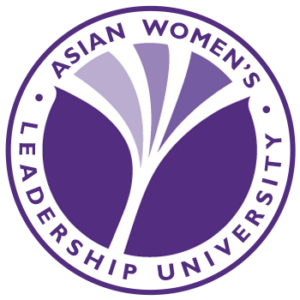 Forging an institution for the future
Forging an institution for the future
The idea for a liberal arts college for women in Asia began small. Hou, a graduate of Smith (a prominent American women’s college), was traveling all over the region in her role as a Hong Kong-based capital markets lawyer when inspiration struck. “What I noticed . . . was that there was a dearth of opportunity for young women (and also men) to receive a ‘liberal arts’ education that I myself had received and valued so much,” Hou explains.
Her observations led her to participate in a project to found the Asian University for Women, a women’s liberal arts college in Bangladesh. But Hou still wanted more: she believed that if a women’s institution could be more centrally located, in a better developed country, it stood a better chance of attracting students from throughout Asia. “I realized that the concept could be broadened beyond Bangladesh so that more women from the swath of Asia as well as the Middle East could have the opportunity for a liberal arts education,” Hou says.
Hou’s appreciation of her own liberal arts education at Smith has played a major part in her development of the AWLU concept. She remembers her college years fondly, particularly the process of academic inquiry and debate at the heart of the liberal arts educational model. “[We were able to] inquire and challenge the ideas we encountered in our readings, and wrestle with the viewpoints expressed in class, including sometimes our own,” she explains. “We grew personally and intellectually in this process.”
Hou’s immense passion for the liberal arts has been the catalyst for navigating the complexities of founding a viable higher education institution. She’s faced immense challenges in pushing forward to accomplish her dream of a new academic tradition in Malaysia, and she readily admits her early difficulties: “Imagine being a 28-year-old, not necessarily well-established, not wealthy, and not particularly well connected. Just a young person and an idea that itself was so compelling.”
The project began to “build up momentum” when she began sharing it with her peers and her alumni network, which eventually resulted in two prominent trustees of Smith coming aboard.
Now, the milestones for the Project seem to flash past. The group built an impressive board and international advisory council; fundraised RM20 million; and are now waiting for approval for a university license from the Malaysian Ministry of Education.
Another major success came in forging partnerships with two American schools – Perdana — Johns Hopkins Medical School, which has pledged to offer internship experiences to interested AWLU students, and Smith College, which will serve as an institutional advisory partner. Smith representatives have already accompanied Hou and her colleagues on trips to meet with Malaysian officials and secure a building site. In August 2012, Smith hosted a two-week long planning session, in which a group of AWLU Project leaders and Smith administrators and professors laid plans for an exciting new liberal arts curriculum and created designs for campus life. Maureen Mahoney, Dean of the College at Smith, is excited about the relationship, which she says is “a liaison between a 200-year-old women’s education institution and one that will be brand new, but both working toward the same mission, which is to educate women for positive social change.”
Bringing the Best of the Liberal Arts to Asia
Hou and her team aren’t alone in wanting to incorporate liberal arts principles into Asian academia. In recent years, several collaborations between Asian academic institutions and American ones have developed to create institutions that try to combine the best of both educational traditions –the distinction between these schools and the AWLU being their direct growth out of established institutions.
Yale-NUS, a new college that is the product of a relationship between Yale University and the National University of Singapore is one such example. Its president, former Yale professor Pericles Lewis, believes that introducing some of the principles of the liberal arts education into the region is essential to broadening student opportunities.
“As the first liberal arts college in Singapore, our college is the first alternative to specialized and technical university programs, and is one of the pioneers of such learning in all of Asia,” he explains. “Yale-NUS College’s strength comes from the breadth of the education we offer, our active pedagogy, and our encouragement of creativity.”
Like Hou, Lewis emphasizes the liberal arts ideas as a gateway into global citizenship and success in the modern world. He explains that Yale-NUS’s “distinctive curriculum spans Asia and the West, the arts and sciences.” Lewis continues: “this broader education will prepare our students well for the 21st century, allowing them to develop their capacities to the fullest by encouraging active learning.”
Hou and Lewis say that it hasn’t been easy explaining the value of the broad liberal arts model. “Liberal arts is new to Singapore,” Lewis explains, “and quite a few people were, and are, second-guessing Yale-NUS.”
Both leaders are quick to stress that it is not their intention to simply bring a classical Western educational idea to Asia. “We’ve said from the beginning that this is not a ‘lift-and-drop’ type of project,” says Hou. “Relevant education in our view means [a model] that is responsive to the needs and concerns of the region, adequate in equipping [students with] skills to operate in a context both within and beyond the region.” She also wants to ensure that the AWLU’s curriculum celebrates the rich history, culture, and educational strengths of Asia.
It’s a tall order, but following the August 2012 curriculum and campus life planning session for the AWLU, Hou and Dean Mahoney are optimistic. “We were really inventing a new . . . ideal liberal arts curriculum for young women that would include leadership as a focus,” says Mahoney, who is particularly enthusiastic about the interdisciplinary focus of the new curriculum, which she believes is in keeping with current cross-disciplinary academic trends. She cites a seminar on design that combines studio art with engineering principles as a good example of the sort of interdisciplinary learning the AWLU will offer.
True to her goal of educating women to take leadership initiative, Hou is proud of the Incubator Lab, which, with the help of well-established mentor entrepreneurs, will “provide both a physical and a thought space where creative energy, initiative, and new ideas can flourish” at the AWLU. Modeled after Harvard’s Innovation Lab, the Incubator Lab will encourage AWLU students to analyze current problems and develop solutions, whether it be “community initiatives, social enterprises, or for-profit ideas.” Hou hopes the Incubator Lab will put the AWLU on the entrepreneurial map. “We’d love to contribute to the vitality of the start-up scene in the region,” she says.
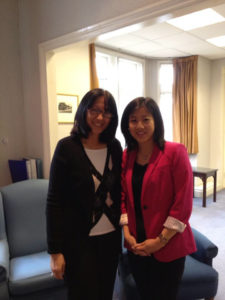 A women’s education with a conscience
A women’s education with a conscience
Why a women’s-only institution? Hou has two answers to that one. First, she explains, “many conservative families will not let their daughters study abroad in places like the US, so a location in Asia and [an institution] that is single-sex maximizes the chance that these students . . . obtain an education that many of us take for granted.”
But more importantly, Hou sees the AWLU and its socially-conscious mission as a response to the “global and pervasive problem” of women’s civic, economic, and social status around the world. Dean Mahoney agrees: “The importance of the project is that it . . . enters into what I consider the new discussion of women’s education,” which understands that better-educated and empowered women can be powerful change agents in local communities, education, family planning and health worldwide.
Hou and the rest of the project’s leadership want the AWLU to contribute to the modern discourse on women’s status. “We believe education is one of the most effective ways to hammer away at that problem.”
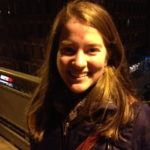 About the Writer
About the Writer
Margaret Barthel recently graduated from Smith College with a degree in English Language and Literature. Among other things, she’s a writer, reader, history buff, and outdoors enthusiast with deep interests in feminism, politics, and the environment. A semester abroad studying at Oxford University and exploring continental Europe, in addition to plenty of quirky family vacations, are to blame for her love of travel. Find more of her work at margaretbarthel.wordpress.com.
